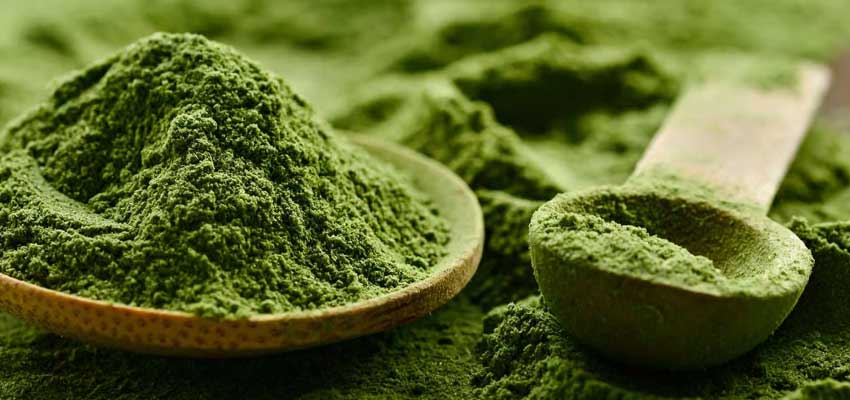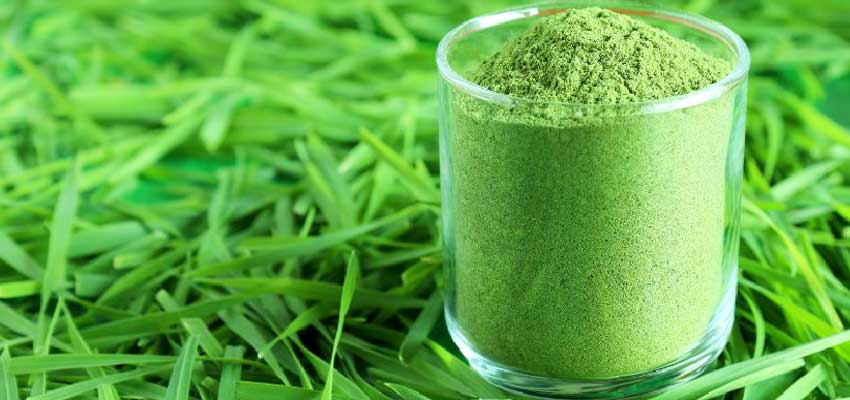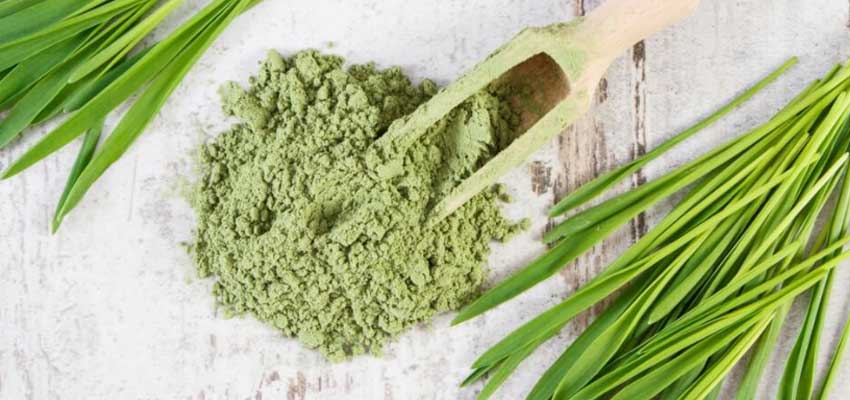
Ultimate Guide to Wheatgrass Powder. Benefits, Side effects & Precautions
Tablet of Contents
Wheatgrass powder is a nutritional supplement manufactured from Triticum aestivum, the young grass of the wheat plant.
The grass is harvested when it is still very young, usually between seven to 14 days old, and then dehydrated and ground into a fine powder.
Wheatgrass powder is frequently claimed to its health advantages due to its high concentration of vitamins, minerals, and antioxidants.

The use of wheatgrass for medicinal purposes dates back to ancient Egypt and Mesopotamia, where it was consumed as a tonic to help promote health and vitality.
In the 20th century, the American agricultural chemist Charles Schnabel began conducting research on the nutritional benefits of wheatgrass, and by the 1940s, he had developed a process for drying and powdering the grass for use as a dietary supplement.

Wheatgrass powder is typically made by harvesting the young wheatgrass plants when they are between seven to 14 days old before they have fully developed their leaves.
The grass is then washed and juiced, and the juice is filtered to remove any solids. The remaining liquid is then dehydrated at a low temperature to preserve its nutrient content, and the resulting dry powder is then ground into a fine powder that can be used as a dietary supplement.
Some manufacturers also add other ingredients to the powder, such as spirulina or other superfoods, to boost its nutritional content.
Have a look at black wheat benefits here for your reference.
Benefits of Wheatgrass Powder
- High in nutrients and antioxidants: Wheatgrass powder is packed with vitamins, minerals, and antioxidants that help to support overall health and well-being.It contains a lot of vitamins A, C, and E, as well as minerals including iron, calcium, and magnesium.
- May boost the immune system: Wheatgrass powder’s strong antioxidant content may assist to improve the immune system, making it more effective in fighting infections and illnesses.
- May improve digestion: Wheatgrass powder includes enzymes that can aid digestion and decrease inflammation in the gastrointestinal tract. It may also assist to encourage regular bowel motions and alleviate constipation symptoms.
- May lower cholesterol and blood pressure: Some studies have found that wheatgrass powder may help to lower cholesterol and blood pressure levels, which can reduce the risk of heart disease and stroke.
- May promote weight loss: Wheatgrass powder is low in calories but high in nutrients, which can help to promote weight loss when included as part of a healthy diet and exercise program.
- May reduce inflammation and oxidative stress: Wheatgrass powder’s antioxidants may aid to decrease inflammation and oxidative stress in the body, both of which are known to be underlying causes in many chronic illnesses.
- May improve skin health: Wheatgrass powder is rich in antioxidants, vitamins, and minerals that may help to improve skin health. It may help to reduce the appearance of fine lines and wrinkles and improve skin texture and tone. Additionally, some people use wheatgrass powder topically as a natural skin treatment.
- May help detoxify the body: Wheatgrass powder is said to assist in detoxification by eliminating toxins and impurities from the liver and blood. It may also aid in the body’s natural detoxification processes by encouraging regular bowel movements and decreasing inflammation in the digestive system.
- May improve oral health: The antibacterial and anti-inflammatory properties of wheatgrass powder may help to improve oral health by reducing the risk of gum disease and other oral infections. Some people also use wheatgrass powder as a natural mouthwash to freshen breath and promote oral hygiene.
Consider reading muskmelon benefits here as well.
How to use wheatgrass powder
- Mixing with water or other liquids: One of the easiest ways to use wheatgrass powder is to mix it with water or other liquids, such as juice or coconut water. Simply add a teaspoon or two of the powder to a glass of water or your preferred liquid, and stir until it is well mixed. Some people prefer to use a shaker bottle or blender to ensure that the powder is fully dissolved.
- Adding to smoothies or other recipes: Wheatgrass powder can also be added to smoothies, juices, or other recipes for an extra nutrient boost. Simply blend the powder with your other ingredients, such as fruits and vegetables, and enjoy. Wheatgrass powder can also be added to baked goods, such as muffins or bread, for a healthy twist on traditional recipes.
- Taking as a supplement: For those who prefer a more convenient option, wheatgrass powder is available in capsule or tablet form. Simply take the manufacturer’s suggested dose, which is normally one to two capsules or pills each day. It is critical to carefully follow the manufacturer’s recommendations and not exceed the suggested dose.
Check the list of vitamin d foods for vegetarians here and add them in your daily diet plan.
Potential Side Effects and Precautions
- Allergic reactions: Wheatgrass powder is made from wheatgrass, which is a member of the wheat family. People with wheat allergies or sensitivities may experience allergic reactions when consuming wheatgrass powder, including symptoms like hives, itching, and difficulty breathing.
- Interactions with certain medications: Wheatgrass powder may interact with certain medications, including blood thinners and drugs that are processed by the liver. If you are taking any medications, it is important to speak with your healthcare provider before using wheatgrass powder or any other dietary supplements.
- Avoiding contaminated sources of wheatgrass powder: Some sources of wheatgrass powder may be contaminated with harmful bacteria, such as E. coli or Salmonella. It is important to choose a high-quality powder from a reputable manufacturer and to follow proper food safety guidelines when handling and preparing the powder.
Want to opt for gluten free atta? Here are some of the best options for you.
Overall, while wheatgrass powder is generally considered safe for most people when used as directed, it is important to be aware of the potential side effects and to take appropriate precautions.
Consider Reading:
Conclusion
Given the possible advantages and hazards of utilising wheatgrass powder, consumers should consult with a healthcare expert before beginning any new supplement programme.
This is especially crucial for people who have underlying health issues or are on medications, as wheatgrass powder might interact with some medications.
Furthermore, further study is needed to fully understand the possible advantages and hazards of consuming wheatgrass powder, especially at large dosages or for lengthy periods of time.
Overall, including wheatgrass powder in a healthy diet and lifestyle may provide a variety of possible advantages; however, it is critical to do so carefully and under the supervision of a healthcare practitioner.







जैसा कि आपने बताया है इस सिरप के उपयोग से बहते हुए खून को कंट्रोल में किया जा सकता है…